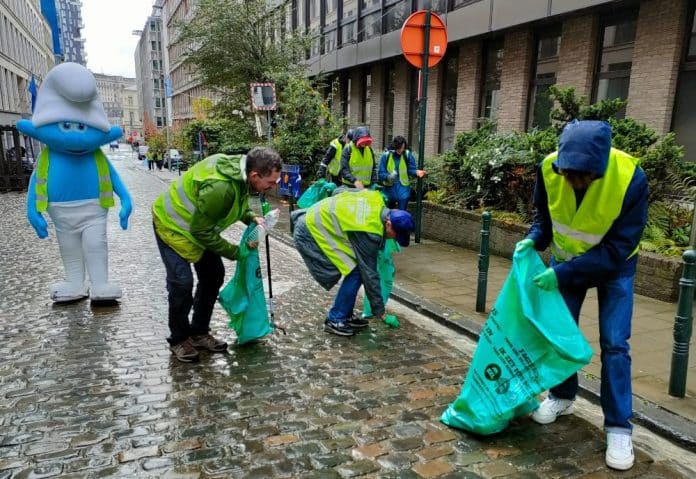Friday, 20 September, marks the first UN World Cleanup Day, adopted by the United Nations General Assembly on 8 December 2023. This observance, facilitated by UN-Habitat, aims to raise awareness of the role of cleanup efforts in sustainable development. It is also an opportunity to share practical and innovative solutions that can be adopted globally and encourage community involvement and international collaboration to address waste management challenges.
Events Worldwide
Over the years, volunteers, communities and governments have been undertaking activities globally to help clean the planet. The UN World Cleanup Day aims to highlight their contribution to preserving and maintaining a clean and healthy environment.
The inaugural event of the first World Cleanup Day is on 20 September in the city of Tromsø, Norway, with the theme “Arctic Cities and Marine Litter”. It showcases Norway’s innovative waste management strategies specific to harsh climates.
#EUBeachCleanup
Each year, the European Union, in collaboration with the United Nations and the Smurfs, hosts the #EUBeachCleanup campaign, an initiative focused on ocean protection through global beach and riverbank cleanups. This year, the European Commission is calling on enthusiastic and motivated volunteers to join a canal cleanup in Ittre, Belgium. The event will take place on Sunday, 22 September, at 10:30 AM at the Port de Plaisance in Ittre and volunteers will be able to take part on land or in the water via kayaks, boats, or paddleboards.
Additionally, the European Commission Representation in Belgium, along with the Directorate-General for Maritime Affairs and Fisheries (DG MARE), will host related events in Brussels and Lokeren, including a World Cleanup Day on 21 September.

Manneken-Pis in his sweeping uniform
The City of Brussels participates in World Cleanup Day on Saturday, 21 September 2024. This year, a Cleanup Village will be organised at Place De Brouckère by the Regional Waste Management Agency’ Bruxelles Propreté’ and the City’s Cleaning Services. In addition to the Cleanup Village, the road sweepers of the Cleaning Service will be present at several other locations in the city. The well-known Manneken-Pis will wear his costume of sweeper of the City of Brussels the day before, on Friday 20 September.
The culture of waste: What is the scale of the problem?
As cities continue to grow, so does the municipal solid waste. Every year, we generate over 2 billion tonnes of municipal solid waste. In 2022, an average of 82 % of municipal solid waste globally was being collected, but only 55 % was being managed in controlled facilities. Not collecting waste can harm human health (infections), the environment (plastic pollution and greenhouse gas emissions) and socio-economic development. Worldwide, more than two billion people lack access to waste collection.
According to the UNEP Global Waste Management Outlook 2024 (GWMO 2024) report, Municipal solid waste generation is predicted to grow from 2.1 billion tonnes in 2023 to 3.8 billion tonnes by 2050.
We waste too much food, and an estimated 17 % of total food available to consumers is wasted at household, food service and retail levels. This means 121 kilograms per person each year, with about 60 % of this waste occurring in households. Both food loss and food waste have substantial environmental, social and economic consequences.
Moreover, the world’s electronic waste is not being safely managed. In 2019, the amount of e-waste generated globally was 7.3 kilograms per capita, out of which only 1.7 kilograms was managed in an environmentally safe way.
Land-based waste is the primary source of marine pollution. In 2021, more than 17 million metric tons of plastic entered the world’s oceans, amounting to 85 % of marine litter. The volume of plastic pollution entering the ocean each year is expected to double or triple by 2040, threatening all marine life.
What can be done?
Waste that is not controlled knows no national borders; it affects terrestrial and aquatic ecosystems and the atmosphere. Pollution from waste can harm our health as well as the environment. It is crucial to prevent waste generation and to manage existing waste sustainably. All public, private and civil society stakeholders must work together to reduce waste and focus on moving towards zero waste and circular economy practices.
World Cleanup Day provides a powerful platform to raise awareness about the millions of tons of mismanaged waste globally and to mobilise cities worldwide to clean up litter and waste.
We can all contribute by consuming consciously and avoiding goods that are over-packaged or have a short lifespan. We can support local sustainable businesses and use consumer power to influence business practices. Where possible: reduce, reuse, recycle, refill, compost and segregate! We all are responsible for preserving a clean and healthy planet for future generations.

